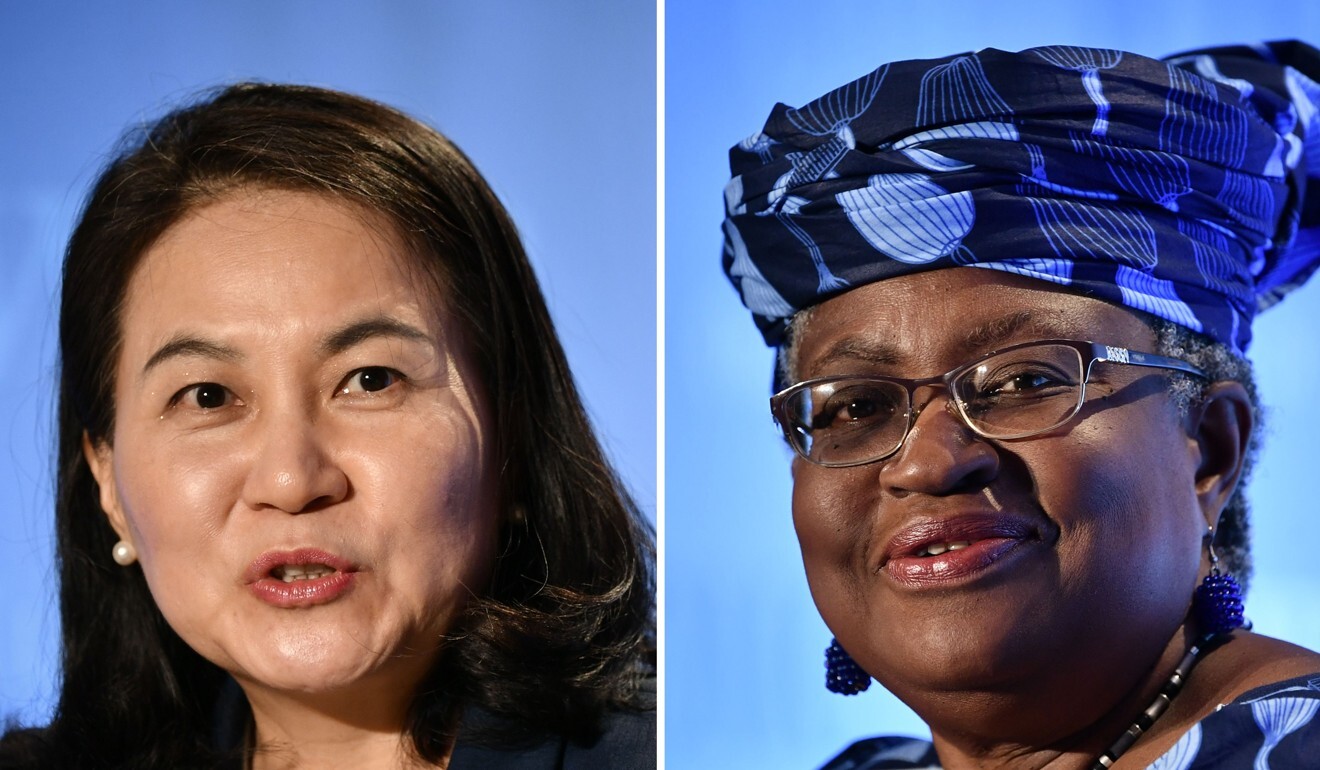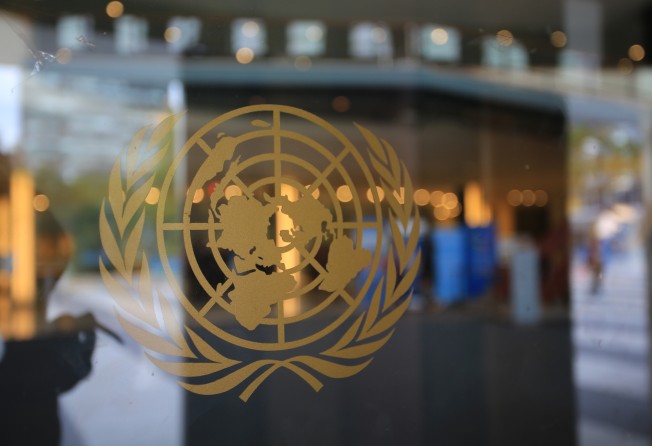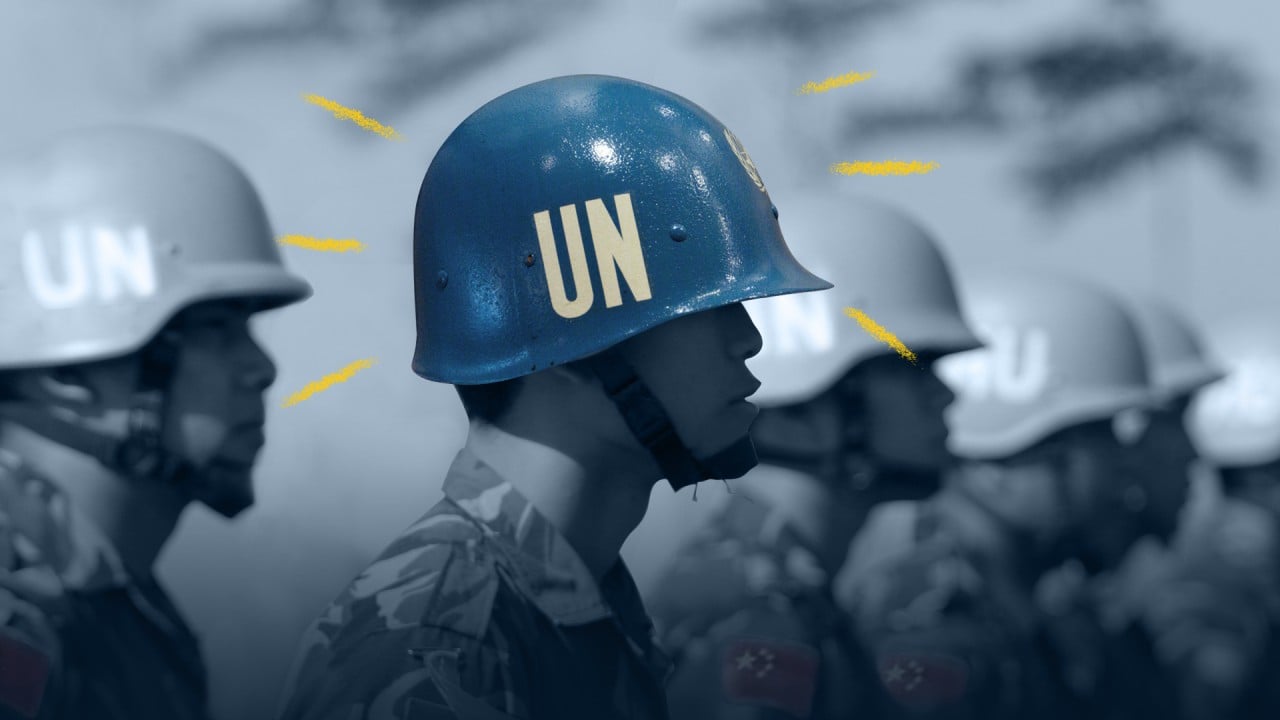
Wary of losing out to China and South Korea, Japan is training new diplomats capable of leading world bodies
- Tokyo has undertaken the initiative amid fears it is being overtaken by Beijing and Seoul, whose citizens have been considered for top UN and World Trade Organization roles
- According to an analyst, Japan in recent years has not been able to exert influence over world issues or politics as ‘it has become so sidelined on the global stage’

Japan has announced plans to develop a new generation of diplomats and experts with the skills required to head international bodies, amid fears it is losing out to China and South Korea – whose citizens have been considered for top roles in the United Nations and the World Trade Organization (WTO).
Analysts said Japan was particularly concerned when Yoo Myung-hee, the South Korean trade minister, was shortlisted for the position of WTO director general. Tokyo and Seoul have in recent years been locked in a trade dispute linked to the nations’ shared history, with the row escalating to the point that Japan in 2019 imposed export controls on a number of chemicals critical to South Korea’s microchip industry. Should any bilateral trade dispute be referred to the WTO, Japan feared, a South Korean director general might not be completely impartial.
Yoo in early February conceded the campaign for the WTO leadership to Nigeria’s Ngozi Okonjo-Iweala, but the closeness of the race appears to have been perceived by Tokyo as an indicator of its diminished status and influence in world affairs.
Similarly, China presently holds the leadership of four UN bodies, including the Food and Agriculture Organization. Critics suggest Beijing has been granted control of these agencies thanks to its generous aid packages, which have been provided to developing nations in Africa before those nations voted for Chinese candidates in elections for international organisations.

Local media reports over the weekend indicated that Japan’s National Security Secretariat and the Ministry of Foreign Affairs would take the lead in the development initiative. Initially, a committee will be set up to identify how best to go about nurturing personnel with the skills required to take on global leadership roles available to Japanese candidates.
“Japan has in recent years not been able to exert influence over world issues or politics because it has become so sidelined on the global stage,” said Patrick Hein, a lecturer in political science at the Tokyo University of Foreign Studies.
“Now they are realising that they have slipped a long way behind other countries and they feel threatened, particularly by China’s growing power. Tokyo does not want to lose out to China, but they are also worried about South Korea.”
When it came to judges at leading international judicial institutions, Hein pointed out that while Japan had “two or three” judges in significant roles, China had more than 100.
“Japan needs to take bolder initiatives in forums such as the Human Rights Council or the UN Security Council, but to do that it needs the right people in the right places,” he said.
Japan’s lack of presence in prominent posts is a relatively recent phenomenon. Koichiro Matsuura was director general of Unesco for a decade from 1999, while Yukiya Amano headed the International Atomic Energy Agency for the same amount of time beginning in 2009.

07:49
SCMP Explains: China’s growing role in UN peacekeeping missions in Africa
Similarly, Koji Sekimizu was secretary general of the International Maritime Organisation between 2012 and 2016, while the late Sadako Ogata won plaudits during her spell as UN high commissioner for refugees between 1991 and 2000.
A serving Japanese diplomat told This Week in Asia that Tokyo was “very wary about the growing influence of China on drawing up the new international order in various fields, such as cyberspace and development of outer space”.
The official, who has spent time in the United States but is presently based in Japan, said the US and European countries had expressed similar concerns at Beijing’s growing international influence.
In the past, Japan was very energetic in the diplomatic arena, but that has declined as our national power has declined
“In the past, Japan was very energetic in the diplomatic arena, but that has declined as our national power has declined,” he said. “And that has coincided with China’s growth and increased wealth, which gives Beijing a greater presence in the international arena.”
There were also some domestic issues at play, he said, with fewer Japanese people truly confident at being able to communicate effectively in English, the language of international diplomacy, and other diplomats reluctant to take on high-profile and high-pressure positions.
Others might be more tempted at the less demanding and often better-paid roles at universities, think-tanks or other similar organisations, he added.